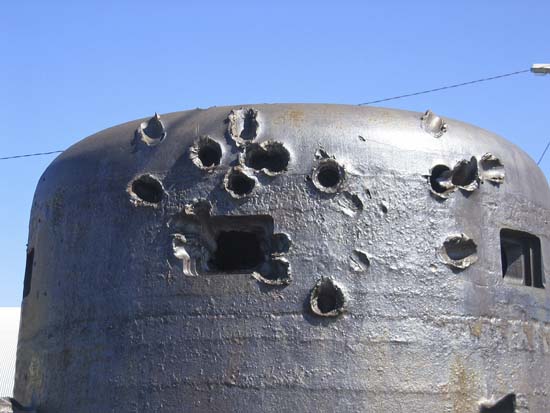
WikiLeaks: State Department Retreats to Bunker
Senior Foreign Service shuns needed reforms regarding diplomatic cables
Reading time: (Number of words: )
The maxim, known to every good manager, is that there is rarely any bad news that cannot be turned into something positive. However, within the reform-resistant Senior Foreign Service of the United States, the worship of the status quo has always overshadowed efficiency. The WikiLeaks disclosures have generated hysterical pronouncements of doom by State Department officials when they should be using the WikiLeaks disclosures as a wake-up call for reform of its dysfunctional diplomatic cable system. This author proposes a measured three-step response:
Step One: Reduce the massive volume of information being unnecessarily classified. It is easier to protect a smaller volume of documents.
Step Two: Reduce access to secret information. Low ranking U.S. military members at isolated Iraqi outposts do not need access to U.S. embassy cables from around the world.
Step Three: Introduce the concept of professional editing of diplomatic cables. Washington, D.C. is awash in extraneous information. As this article will reveal, some American diplomatic and intelligence personnel should be sent back to school so they can begin to understand the difference between important information and silly gossip. Many of the “embarrassing” disclosures from these cables are solely due to their unprofessional content. Facts are frequently missing, but there is no lack of amateurish psychoanalyses and name-calling of foreign leaders. Some U.S. diplomats seem to lack an appreciation for the basic mantra: “just the facts please.”
More examples:
1. October 21, 2008, cable from U.S. Deputy Chief of Mission to Pakistan Richard LeBaron, who quotes a British aid official as calling Pakistan President Asif Ali Zardari a “numbskull."
2. March 5, 2009, cable from U.S. Ambassador to Eritrea, Ronald McMullen, who describes President Isaias Afwerki as an “unhinged dictator.”
3. October 29, 2008, cable from U.S. Ambassador to Kazakhstan, Tatiana Gfoeller: She summarized a dinner attended by the Duke of York, Prince Andrew. She stated that the conversation “verged on the rude,” that Prince Andrew acted “cockily” and that he exhibited almost “neuralgic patriotism” (whatever that means).
4. December 31, 2009, cable from Elissa G. Pitterle, Director of Operations for the State Department’s Bureau of Intelligence and Research, who labeled Argentine President Cristina Fernandez de Kirchner as mentally unstable and suffering from: “nerves and anxiety.”
5. January 22, 2010, cable from Elissa G. Pitterle, entitled: “Kudos and Follow-up Questions.” She was relaying her happiness at the “personality reporting” (i.e., gossip) she received about the love life of British politician Alan Duncan, referring to it as “insightful.”
6. July 7, 2009, cable from U.S. Ambassador to Afghanistan Karl Eikenberry: President Hamid Karzai was described as “paranoid” and “weak.”
German Chancellor Angela Merkel is described in one cable as “rarely creative” (whatever that means); the Russian Prime Minister and President are derogatorily referred to as “Batman and Robin;” British politician Harriet Harmon is described as “a relative policy lightweight;” and Nicaragua’s President is depicted as paranoid. All of these cables could have benefited from extensive editing to eliminate the name-calling, the silly gossip and the unsupported characterizations of each author.
These juvenile cables prompted Turkish Prime Minister Tayyip Erdogan, on November 31, 2010, to publicly state that “The United States should call its diplomats to account.”
In a more professional cable dated February 16, 2010, the late Ambassador Richard C. Holbrooke detailed extensive official corruption within Tajikistan (which is seeking more U.S. aid, so that its President can siphon more money out of the country through a shell company called TALCO). Ambassador Holbrooke correctly pointed out that the government is hindered by extensive “cronyism” and is “resistant to reform.” That description aptly describes the U.S. Department of State’s Senior Foreign Service. Its bureaucracy has retreated into a bunker to weather the current storm, rather than hoisting its sails, cleaning its decks, disposing of its bilge and pushing forward.

Poems for the Hazara
The Anthology of 125 Internationally Recognized Poets From 68 Countries Dedicated to the Hazara
Order Now









